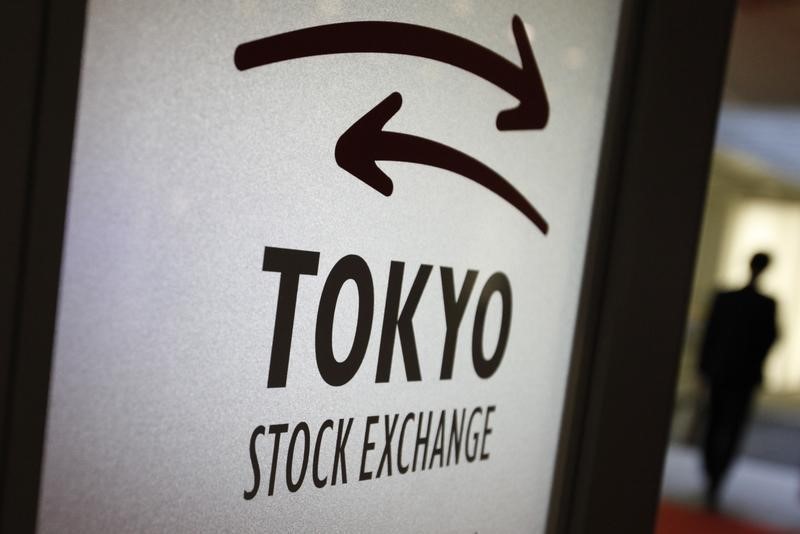
© Reuters.
By Ambar Warrick
Investing.com– Asian stocks fell on Monday, marking a weak start to the fourth quarter as concerns over rising interest rates and slowing economic growth across the globe dented appetite for risk-driven assets.
Trading volumes in the region were also muted as Chinese markets kicked off a week-long holiday, while South Korean markets were also shut.
Technology-heavy indexes continued to underperform as investors discounted future earnings against rising bond yields and interest rates. Hong Kong’s index tumbled 1.6% to a new 11-year low, while the shed 0.7% and fell to a near two-year low.
Fears of tightening U.S. monetary policy were squarely in focus this week ahead of key data due on Friday. The reading is expected to factor into the Federal Reserve’s plans to raise , with perceived strength in the U.S. job market giving the central bank more space to hike.
The rose 0.1% on Monday, recovering from recent losses and indicating that safe-haven plays remained strong.
Regional interest rates are also set to trend higher. Australia’s index fell 0.3% ahead of a widely-expected interest rate hike by the Reserve Bank on Tuesday.
The bank is by 50 basis points, as it seeks to stem inflation which is trending at .
Japanese stocks were an exception to the trend. The index jumped 1% despite data showing that in the country during the third quarter.
But the index was also trading near a three-month low. Most Asian stock markets suffered their worst month since the 2020 COVID shock in September.
Rising interest rates across the globe have greatly pressured stock markets this year, with risk-heavy Asian bourses bearing the brunt of selling. The trend is expected to continue as global monetary policy tightens further.
Sentiment towards risk-driven assets worsened over the weekend amid growing concerns over Swiss bank Credit Suisse Group (SIX:). The lender, which is one of the largest banks in the world, is facing after spreads on credit default swaps, which offer it protection against defaults, rose to their highest levels since the 2008 financial crisis.


Be the first to comment